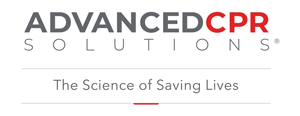State of the Future of Resuscitation Congress
Thank you to all of our attendees for a great conference!!!
The Take Heart America 4th Annual State of the Future of Resuscitation Congress theme this year was Exploring the Realities, and featured five invigorating sessions and a cadaver lab. The 25 speakers were selected for their role in expanding the boundaries of the Bundle of Care, leading to an increased level of neurologically intact survival from sudden cardiac arrest.
A conference summary will be sent to all attendees. Our on-demand education is coming soon via Prodigy EMS.
See you at the 5th Annual State of the Future of Resuscitation Congress in 2022.
Agenda
1:00 PM Wednesday OCTOBER 20| KEYNOTEWelcome, Rules of the Road
This session is designed to get your engines revved up for an exciting and informative day with some of the top researchers and practitioners in the world of sudden cardiac arrest. We will review the day’s events, logistics and pose a few challenges for you to consider today.
1:10 PM - 1:20 PM | Major Shortcomings for Minor Patients
Why EMS Should Explore Alternatives to Current Resuscitation Guidelines
1:20 PM - 1:30 PM | Learning the Polk County POCHA Steps!
The Resuscitation Bundle That Enhances Good Neuro Recovery in Kids. Successful resuscitation in Pediatric Out of Hospital cardiac arrest is based on a bundle of care. On scene management with early epinephrine and definitive airway intervention. Controlled ventilations based on ETCO2 and post ROSC BP management are the keys to success.
1:30 PM - 1:40 PM | No Small Matter Indeed
Taking on and tackling technological Tactics for Pediatric Cardiac Arrest.
1:50 PM - 2:00 PM | It Ain't Over Till It's Over
Refining Our Approach to Terminating Resuscitation Efforts With Family.
2:00 PM - 2:10 PM | Closing Remarks with Some Q&A
MODERATOR
2:15 PM - 2:25 PM | Essence is Of the Time
Enhancing Resuscitation by Improving Response Time to Bundle Application.
Head Up CPR is starting to be used clinically. This talk will provide a brief overview of a Head Up CPR based resuscitation bundle of care and current clinical evidence to date. Additionally, this talk will discuss how this resuscitation bundle should be implemented with ideas for study and clinical use in the future.
2:25 PM - 2:35 PM | Basically Getting the Basics Back to the Basics
The Latest Pivotal Role of Firefighters and Police as the Primary Rescuers in Cardiac Arrest.
After attending this presentation, the participant will be able to:
- Discuss history and trends in resuscitation care by first responders;
- Share strategies on “first arriver” management of prehospital cardiac arrest that impact outcomes; and
- Discuss methods to improve monitors and cardiac intervention equipment that are needed to improve patient outcomes.
2:35 PM - 2:45 PM | Lighting Heart's on Fire
Strategies to Better Partner the Fire Service and Advanced Life Support Crews
2:45 PM - 2:55 PM | Bundling the Bundle Efficiently (and Abundantly)
Facilitating the Fastest Way to Save Lives…Including My Own.
Recent data shows a correlation between time of application of the Bundle of Care and outcomes. Chief Kewitsch will demonstrate how to “Carry Less and Do More” when responding to cardiac arrest, a system developed by two Minnesota fire departments, one of which used the bundle to save his life.
2:55 PM - 3:05 PM | Closing Remarks With Some Q&A
Moderator
3:10 PM - 3:20 PM | Enhance the Flow Wherever You Go
Deploying CPR Devices in Urban and Suburban Environments.
3:20 PM - 3:30 PM | Inspiring Comments
Optimizing Circulation by Refining Our Approach to “Quality Ventilation.”
3:30 PM - 3:40 PM | Measurement of Immeasurably Important Variables
The Monitoring of Cerebral Blood Flow and Tissue Saturation Real-Time During CPR.
3:40 PM - 3:50 PM | Finding the Cooler Way to Regain the Brain
Navigating the Controversies in Temperature Management During and After CPR. We will review the science behind the use of TTM;
We will review and dissect recent data published over the last few years including TTM2; and
We will discuss what this evidence means to the health care provider and what the future holds for TTM.
3:50 PM - 4:00 PM Closing Remarks With Some Q&A
Moderator
So I Walked Into A Fire Department One Day...
How Knowing Where to Go, Made All the Difference.
1:10 PM - 1:20 PM | Experimenting With Reproducing the Experiment
Alternative Approaches to Validating Interventions in Resuscitation Medicine. In this provocative session, the two speakers — longtime advocates of randomized clinical trials — now provide the rationale for disregarding the traditional clinical trial approach in out-of-hospital cardiac arrest interventional analysis and, instead, adopting a more classical scientific methodology of establishing a laboratory success, compulsively documenting and reporting all aspects of the methodology and then being able to consistently reproduce the experiment in other laboratories.
1:20 PM - 1:30 PM | RISE and Shine in the Sunshine State
“Rise and Shine in the Sunshine State”
Our journey of improving cardiac arrest care.
Four years ago, our county fully implemented a unique bundle of care for cardiac arrest. We will briefly discuss our experiences, the improved outcomes and what our next step will be.
1:30 PM - 1:40 PM | It's Not Time to Gloss After ROSC
Stepping Up Bundle Management After Restoring Circulation.
Operationalizing post-resuscitation data review should drive real-time improvements in pre-hospital resuscitative care efforts. Stepping Up Post Bundle Management After Restoring Circulation calls for the need to treat the patient as more than just a number by completing a formalized quality improvement review process. Retrospective resuscitation data review focuses on inter-agency collaboration to identify process improvement opportunities, data-driven changes to the standard of care, areas for education, current challenges in the delivery of care, and the need to incorporate follow-up engagement with discharged patients while utilizing a streamlined quality review process.
1:40 PM - 1:50 PM | Facilely Facilitating Facilitative Facilities
Using Analytics to Improve In-Hospital Cardiac Arrest Outcomes.
1:50 PM - 2:00 PM | Closing Remarks With Some Q&A
Moderator
2:05 PM - 2:15 PM | Beta Stressors, Vasopressors and Arrythmia Suppressors
What are Effective Drug Interventions in Resuscitation?
Epinephrine has been used for over 60 years as a routine drug in cardiac arrest, but recent evidence suggests it may not be as effective as thought. No other cardioactive drugs however have been shown to be any more effective. It may be necessary to consider different epinephrine dose and administration strategies to optimise any possible chronotropic and inotropic benefits without causing excess cerebral vasoconstriction.
2:15 PM - 2:25 PM | How to Map the Optimal ZAP (ASAP)
AEDs Taking Flight, Multi-Vector Shocks, Defibrillators that Cue You Up; What’s Next?
2:25 PM - 2:35 PM | Promoting Extracorporeal Activities
The Evolving Roles of ECMO in the Bundle of Cardiac Arrest Care.
This will include patient selection, patient mobilization and transport, and systems of care to support recovery in the hospital.
I will discuss what has been done and what will be coming in the next 5-10 years as technology and systems continue to evolve.
2:35 PM - 2:45 PM | Closing Remarks With Some Q&A
Moderator
2:45 PM - 2:55 PM | Summarizing the Take-Aways, Future Directions, and Final Q&A
In this closing session, the speaker will attempt to distill the main lessons learned, provide global perspectives and then lay out proposed future directions and then receive audience reactions, suggestions and feedback and recommendations for next steps.
3:00 PM - 4:00 PM Cadaver Lab
During this demonstration you will see all of the following discussed, including the technologies utilized:
- Physiology: Relationship between Changes in Pressures in Abdomen, Thorax, Brain
- Bundle of BLS Devices
- Bundle of ALS Device
- Treatment of Refractory VF with ECMO
- Mock Code

 October 20-21, 2021
October 20-21, 2021 




